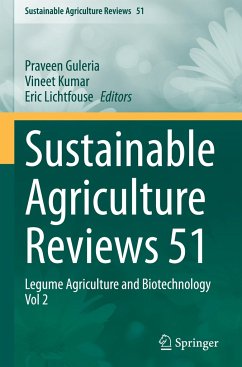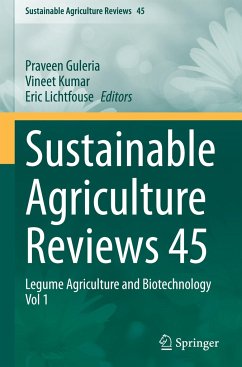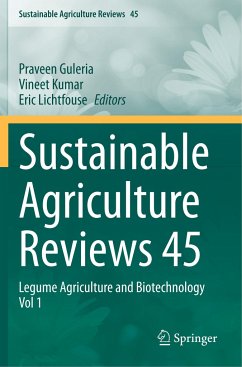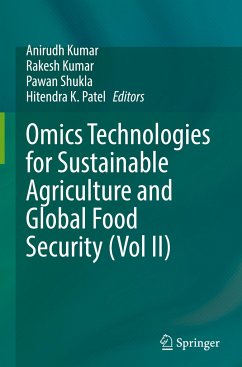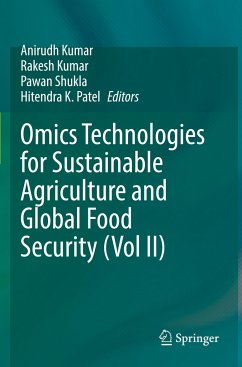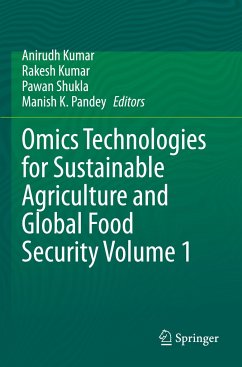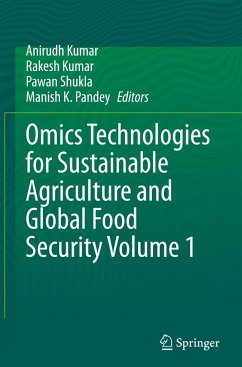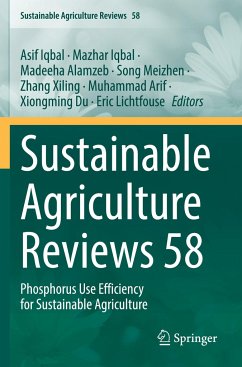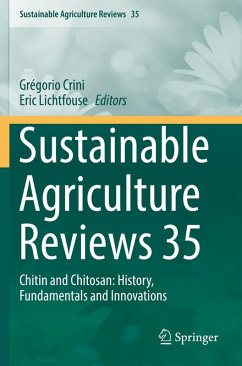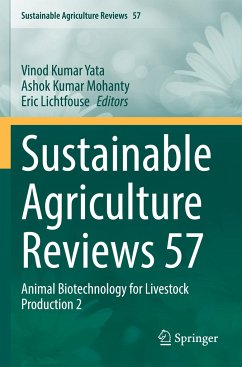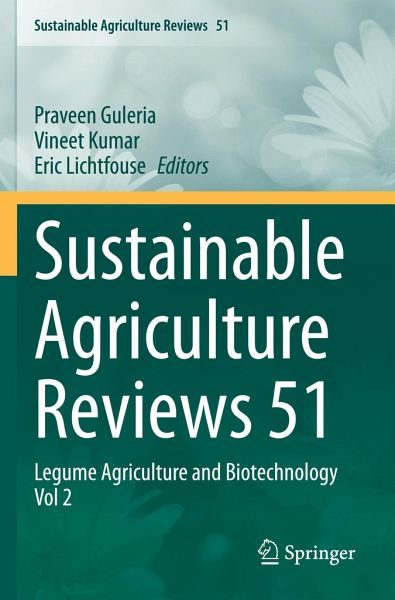
Sustainable Agriculture Reviews 51
Legume Agriculture and Biotechnology Vol 2
Herausgegeben: Guleria, Praveen; Kumar, Vineet; Lichtfouse, Eric
Versandkostenfrei!
Versandfertig in 6-10 Tagen
113,99 €
inkl. MwSt.

PAYBACK Punkte
57 °P sammeln!
In the context of climate change, pollution and food safety, the current challenge is to enhance legumes production to sustain the growing population needs by 2050. This is a daunting task because abiotic and biotic stresses are threatening the growth, survival and productivity of legumes. For instance, the productivity of legumes is documented to be reduced by 14-88% by abiotic stresses. The co-occurrence of abiotic and biotic stresses under field conditions leads to interactive stress types, thus yielding positive or negative outcomes. Legumes react using antioxidant defense, osmoregulatory ...
In the context of climate change, pollution and food safety, the current challenge is to enhance legumes production to sustain the growing population needs by 2050. This is a daunting task because abiotic and biotic stresses are threatening the growth, survival and productivity of legumes. For instance, the productivity of legumes is documented to be reduced by 14-88% by abiotic stresses. The co-occurrence of abiotic and biotic stresses under field conditions leads to interactive stress types, thus yielding positive or negative outcomes. Legumes react using antioxidant defense, osmoregulatory adjustments, hormonal regulations and molecular mechanisms to tolerate stress. Hence, improving legume productivity requires knowledge on the sensitivity, mechanisms and approaches of stress tolerance in legumes, in order to design new crops and alternative management systems. This book presents advances on bioactive compounds, applications, effect of various stresses and biotechnology-basedstress tolerance mechanisms of legumes. This is our second volume on Legume Agriculture and Biotechnology, published in the series Sustainable Agriculture Reviews.



